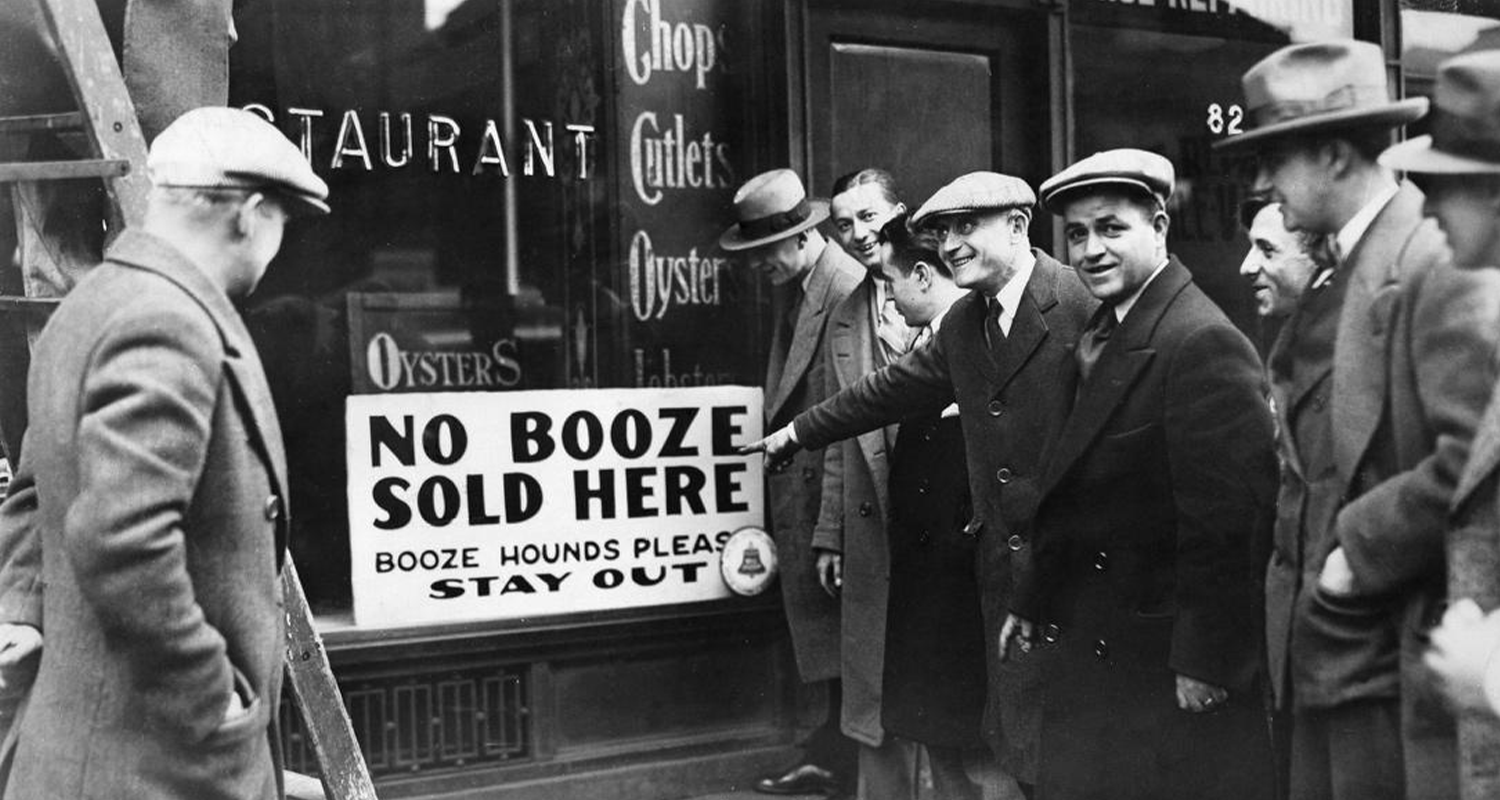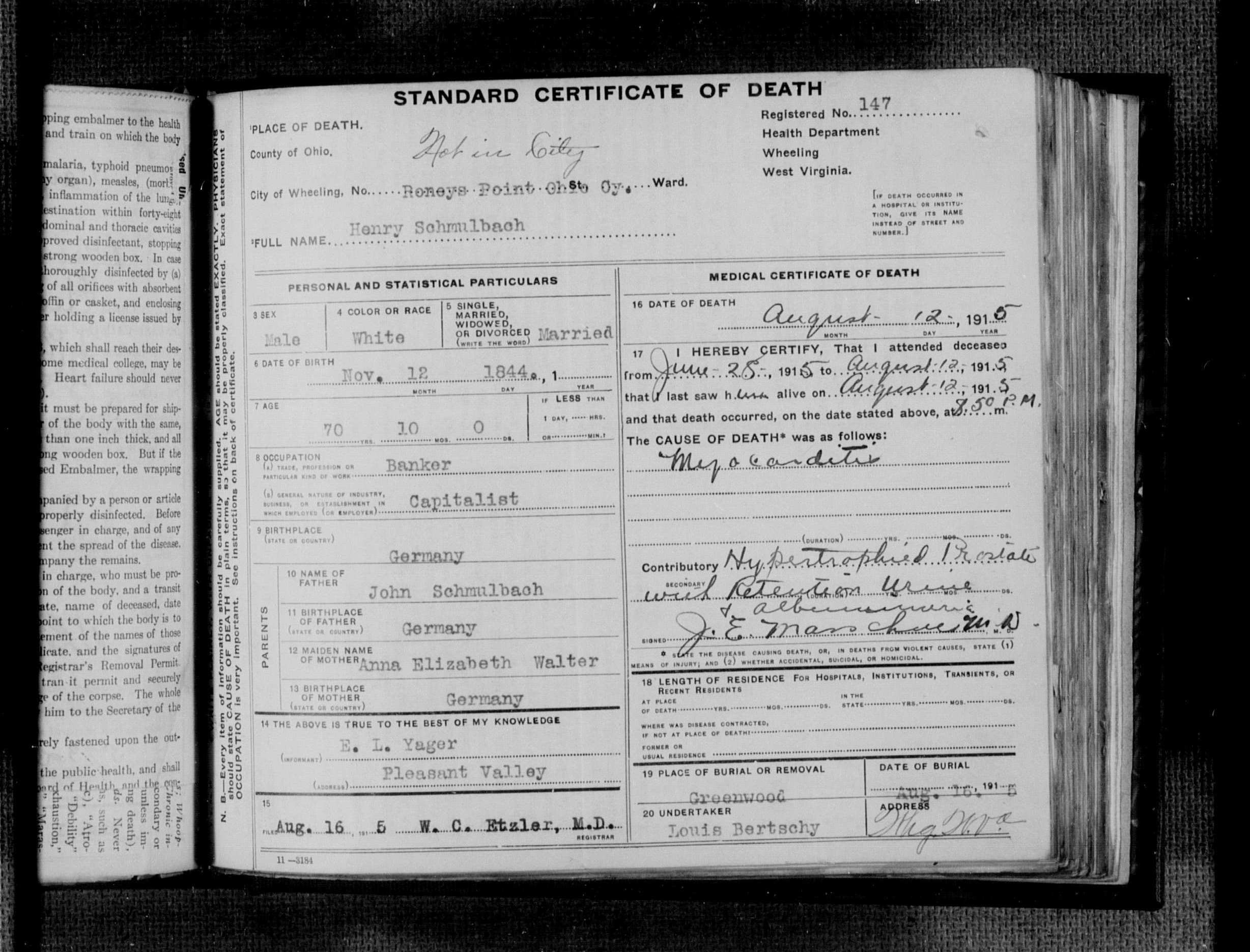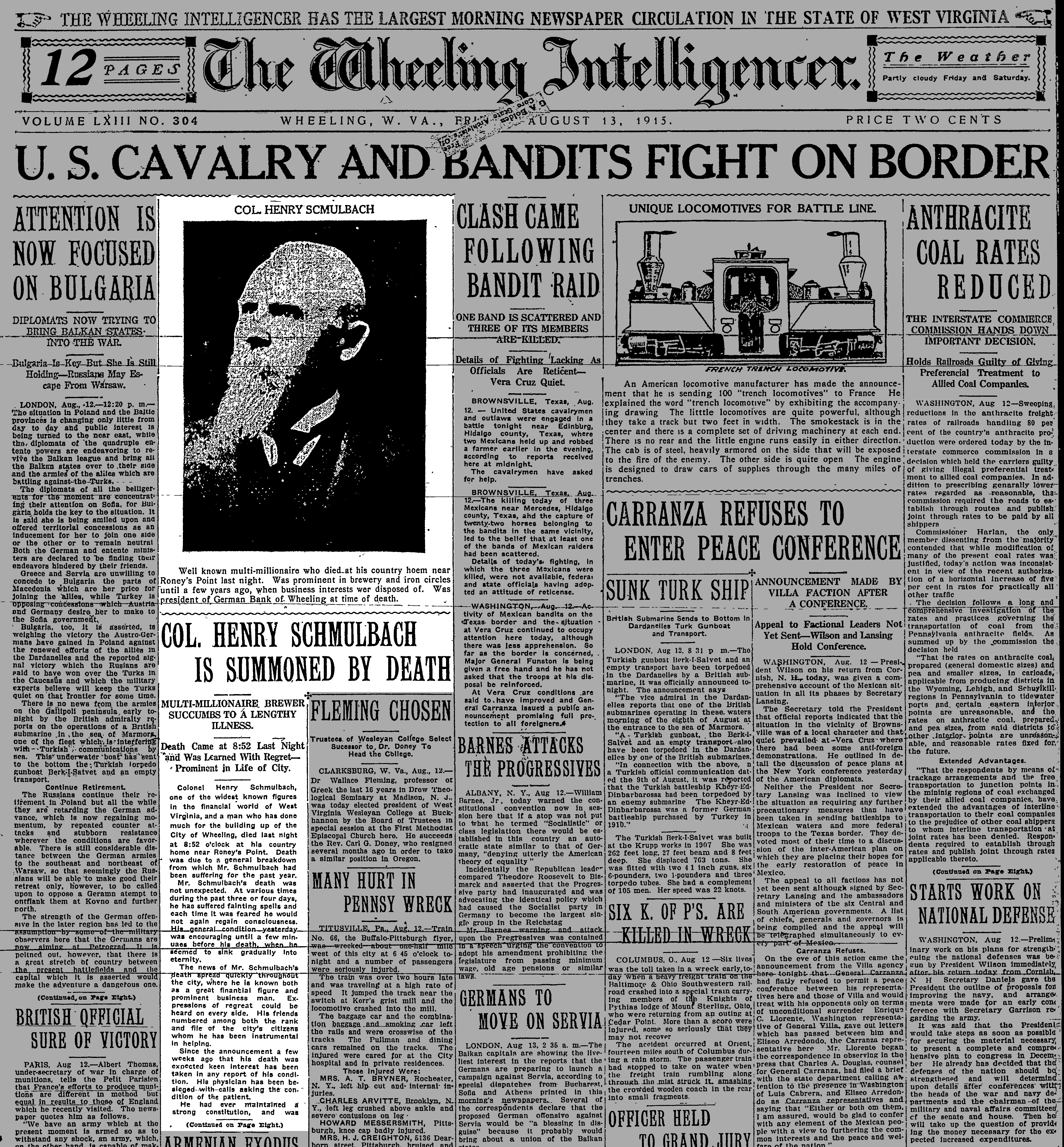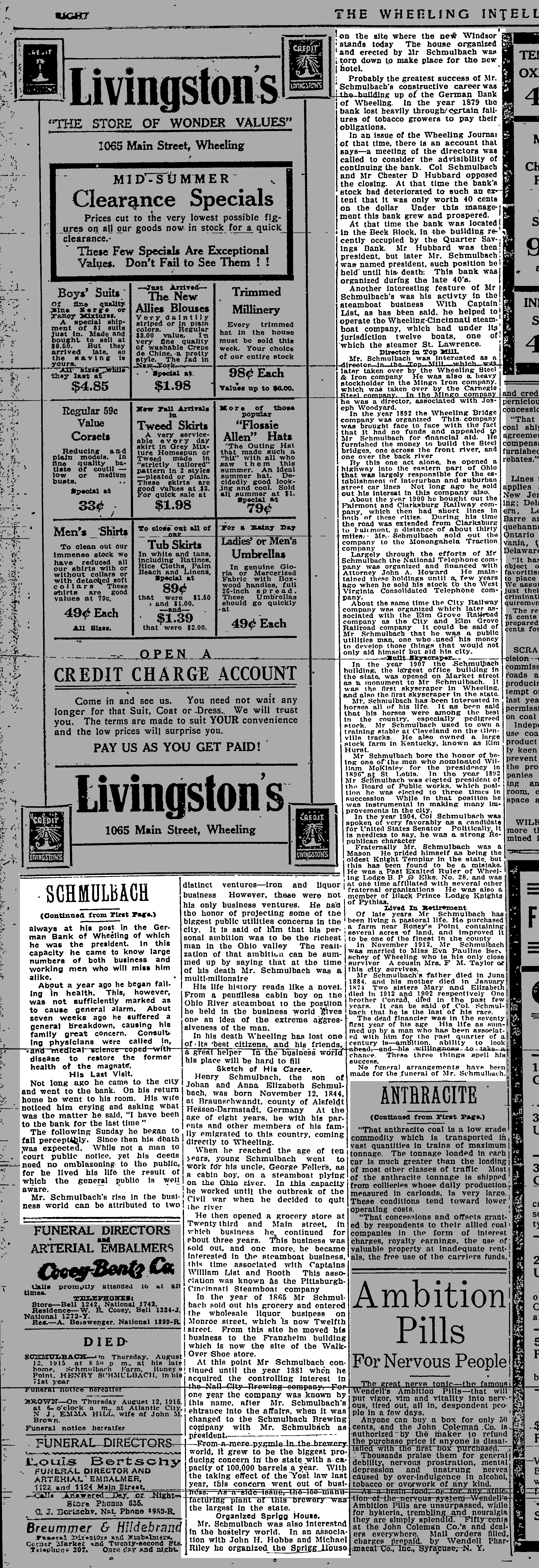Today, the concept of prohibition seems almost ludicrous – making alcohol illegal sounds like an idea that was destined for the dustbin of history. But in episode five of “Henry: The Life and Legacy of Wheeling’s Most Notorious Brewer,” you may be surprised to learn that the effects of the Yost Act, which banned alcohol in West Virginia, are still felt in Wheeling today. Moreover, prohibition likely had a devastating and potentially fatal effect on Henry Schmulbach, who passed away a year after the Yost Act was implemented in 1914.
LISTEN NOW: Henry, Episode 5 – Prohibition: An End to an Era
Episode four of “Henry” detailed the early warning signs of the prohibition to come. One interesting moment in Wheeling’s prohibition history, discussed in this episode, was the 1901 visit of temperance activist Carrie Nation, who was practically the exact opposite of Henry Schmulbach in every respect. Carrie Nation was militantly against alcohol and was infamous for smashing saloons with a hatchet. She was appalled by what she found in Wheeling and left behind quite a few memorable quotes, as she described Wheeling as “the wickedest city in the South … a rum-soaked city … Shame, shame, shame!” After entering a Wheeling saloon with 300 local temperance supporters, she was arrested and charged with inciting a riot. To learn even more details about Carrie Nation’s Wheeling visit, check out this article from Archiving Wheeling!
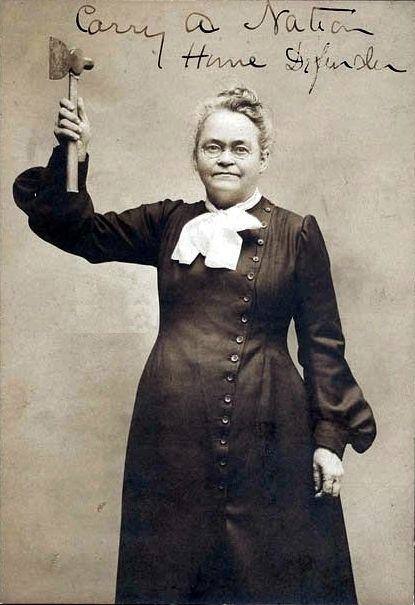
But Carrie Nation’s visit was only a harbinger of temperance activism to come. To prohibition supporters, Wheeling, with its large breweries like those owned by Henry Schmulbach and Anton Reymann and its high proliferation of saloons, desperately needed to become dry. Thus, the Yost Act was passed by the voters of West Virginia in 1912. This was eight years prior to nationwide prohibition in 1920, which occurred under the 19th Amendment. Ohio County was one of only three of the 55 counties of West Virginia to vote against prohibition. Unfortunately for the alcohol enthusiasts of the area, this obviously overwhelming margin meant the loss of Wheeling’s saloons and breweries and their approximately 900 jobs and $105,000 dollars in tax revenue.
The Yost Act was very restrictive and harsh in its sanctions. For instance, the maximum penalty for a third conviction under the Act was a life sentence in the Moundsville Petitionary! And there was considerable undercover surveillance and police activity to ferret out the many individuals illegally making, selling, and consuming alcohol. But the law wasn’t without its loopholes. It allowed for sacramental consumption of wine, which ironically meant that church attendance in the area rose considerably. It also allowed for businesses to register as selling alcohol for medicinal purposes. But these loopholes were not large enough to allow for the survival of Schmulbach Brewing Company. Although there was some discussion of larger breweries like Anheuser-Busch buying out Schmulbach and Reymann, the two erstwhile rivals said they would never sell. Thus, these Wheeling institutions were closed. Today, Kennedy Hardware is run in part of the former Schmulbach brewery, but Reymann’s brewery has been abandoned.
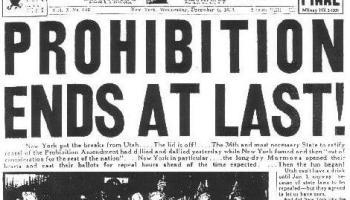
While statewide prohibition would eventually be repealed in 1934, the damage was done for Wheeling. After all, the alcohol industry was a major economic force in the city. The loss of brewing also meant the loss of one of the most visible German cultural symbols in Wheeling. All the rest, like German-named businesses and organizations like the singing societies, were lost just a few years later, when the United States entered World War I against Germany. While Wheeling’s status as a German city had previously been a point of pride, the distrust and fear of Germans during the war meant that almost all of the identifiably German elements in Wheeling disappeared. Even today, Wheeling’s German heritage is nowhere near as pronounced as it once was.
Moreover, the damage was done for Henry Schmulbach. After growing Schmulbach Brewing Company to a regional force, he only lived for another year after seeing his company shut down. He left behind a complicated history and legacy, which is explored more in episode six.
This week marks the 106th anniversary of Henry Schmulbach’s untimely death. While today, most obituaries are contained within their own section of the newspaper, Schmulbach’s death made front-page news back in 1915. This week’s bonus content explores Henry Schmulbach’s very public death announcement, along with his death certificate.
Next Tuesday is our final recap, focused on the legacy of Henry Schmulbach, which is seen in his former homes on Chapline Street and Roney’s Point, as well as in Wheeling’s downtown and business revitalization today.
Also, if you haven’t done so already, mark your calendars for Thursday, August 19 at 6 p.m. at Brew Keepers for our podcast wrap-up event. Henry: Thirsty for More will feature Hal Gorby, Ryan Stanton, and Kevin Ayers. The panelists will lead a Q&A about Henry Schmulbach, the podcast, and brewing then and now!

• Katherine Leary is a summer intern at Wheeling Heritage. She is from Wheeling and is currently a senior at Wellesley College in Wellesley, Massachusetts studying History.


